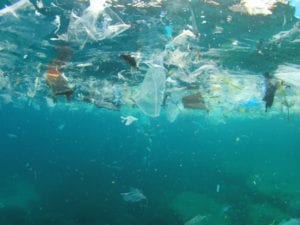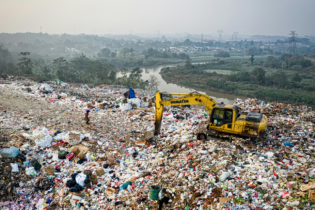A report by academics from the University of Cape Town has cast doubt on the widespread belief that plastics found on the world’s oceans stem from land based sources.
The study suggested that the source of these plastics could actually be shipping vessels who often use the waters. Professor Peter Ryan, an expert on marine plastics led the research, told iOL that the challenge was understanding the origin of general litter which includes food packaging and other domestic products. “Recent studies of litter in the North Pacific garbage patch and remote islands in the Pacific Ocean show that fishing gear and other shipping-related equipment account for much of the mass of plastic at sea.” The researchers found that Inaccessible Island which is located in the Southern Atlantic Ocean and is thousands of kilometres away from any continent, has plastic that does not come from land.By sampling the litter from the island the researchers found out that about a third of the plastics were bottles like soft drink and water bottles.
“Unlike much general household litter, bottles can be useful tracers because they often have marks that indicate where and when they were made, giving an estimate of the maximum time they could have been at sea. We could also use the presence of marine animals – such as goose barnacles – on the bottles as another indicator of how long they had been in the ocean,” said Ryan. Through using models of oceanic currents and the age of the bottles, they were able to look into whether it was possible that bottles could have drifted from the country they were manufactured in. It was also noted by the research that there was little concrete evidence showing that plastic came from land-based sources of plastic.





